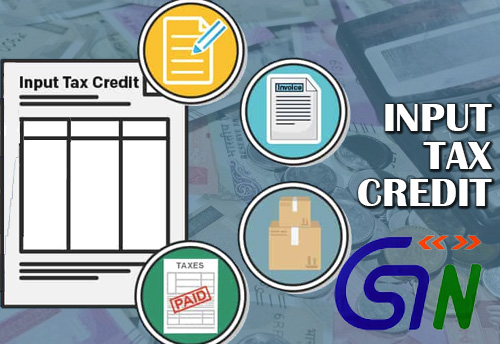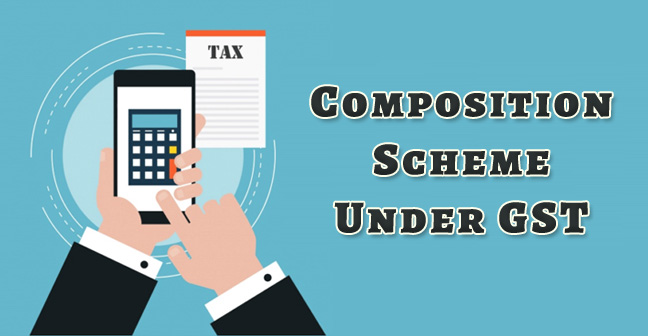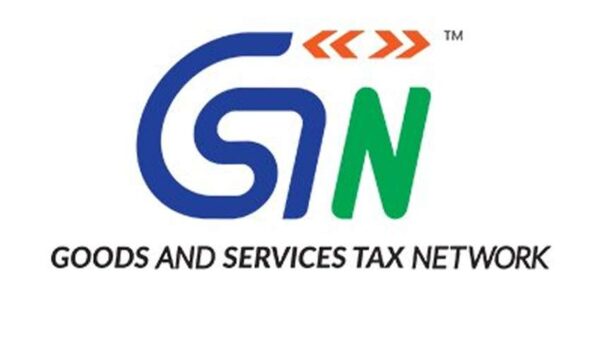For clarifying on various issues emanating from GST, CBIC has till date issued numerous Circulars since introduction of GST regime, which helps the professionals and tax payers in evaporating their doubts. However in view of large number of circulars and also considering the fact that many Circulars are addressing to multiple issues, it is sometimes difficult to search for a clarification on a particular issue / topic.
With this in mind we have prepared a summary of clarifications issued in regard to Input Tax Credit by going through all the Circulars issued till date. We feel the readers would find the same useful.
1. Circular No. 142/12/2020- GST dated 9-10-2020
Clarification relating to application of rule 36(4) of the CGST Rules, 2017 for the months of February, 2020 to August, 2020
Vide notification No. 30/2020-CT, dated 03.04.2020, it was prescribed that ITC restriction under rule 36(4) shall apply cumulatively for the tax period February, March, April, May, June, July and August, 2020 and that the return in FORM GSTR-3B for September, 2020 shall be furnished with the cumulative adjustment of input tax credit for the said months.
The clarifications issued earlier vide Circular No. 123/42/2019 – GST dated 11.11.2019 shall still remain applicable, except for the cumulative application as prescribed in proviso to rule 36(4).
Accordingly, all the taxpayers are advised to ascertain the details of invoices uploaded by their suppliers in GSTR-1 for the periods of February, March, April, May, June, July and August, 2020, till the due date of furnishing of the statement in FORM GSTR-1 for the month of September, 2020 (i.e. 11.10.2020) as reflected in GSTR-2As and reconcile the same with the ITC availed in their FORM GSTR-3Bs for the period February, 2020 to August, 2020.
The cumulative amount of ITC availed for the said months in FORM GSTR-3B should not exceed 110% of the cumulative value of the eligible credit available in respect of invoices or debit notes the details of which have been uploaded by the suppliers in GSTR-1, till the due date of furnishing of the statements in FORM GSTR-1 for September, 2020.
However the total credit can exceed the tax amount as reflected in the total invoices for the supplies received by the taxpayer i.e. the maximum credit available in terms of provisions of section 16 of the CGST Act.
The excess ITC availed arising out of reconciliation during this period, if any, shall be required to be reversed in Table 4(B)(2) of FORM GSTR-3B, for September, 2020. Failure to reverse such excess availed ITC on account of cumulative application of rule 36(4) would be treated as availment of ineligible ITC during the month of September, 2020.
2. Circular No. 136/06/2020 dated 3-4-2020
Clarification in respect of various measures announced by the Government for providing relief to the taxpayers in view of spread of Novel Corona Virus (COVID-19)
Deferment of applicability of ITC restriction under Rule 36(4) of the CGST Rules
Vide notification No. 30/2020- Central Tax, dated 03.04.2020, a proviso has been inserted in CGST Rules 2017 to provide that the said condition shall not apply to input tax credit availed by the registered persons in the returns in FORM GSTR-3B for the months of February, March, April, May, June, July and August, 2020, but that the said condition shall apply cumulatively for the said period and that the return in FORM GSTR-3B for the tax period of September, 2020 shall be furnished with cumulative adjustment of input tax credit for the said months in accordance with the condition under rule 36(4).
3. Circular No. 134/04/2020 dated 23-3-2020
Seeks to clarify issues in respect of issues under GST law for companies under Insolvency and Bankruptcy Code, 2016
a) Availing of ITC for invoices issued to the erstwhile registered person
The special procedure issued under section 148 of the CGST Act has provided the manner of availment of ITC while furnishing the first return under section 40. The said class of persons shall, in his first return, be eligible to avail input tax credit on invoices covering the supplies of goods or services or both, received since appointment as IRP/RP and during the CIRP period but bearing the GSTIN of the erstwhile registered person, subject to the conditions of Chapter V of the CGST Act and rule made thereunder, except the provisions of section 16(4) of the CGST Act and rule 36(4) of the CGST Rules. In terms of the special procedure under section 148 of the CGST Act issued vide notification No.11/2020- Central Tax, dated 21.03.2020. This exception is made only for the first return filed under section 40 of the CGST Act.
b) Availing of ITC for invoices by recipient of supplies from the corporate debtors undergoing CIRP
Registered persons who are receiving supplies from the said class of persons shall, for the period from the date of appointment of IRP / RP till the date of registration as required in this notification or 30 days from the date of this notification, whichever is earlier, be eligible to avail input tax credit on invoices issued using the GSTIN of the erstwhile registered person, subject to the conditions of Chapter V of the CGST Act and rule made thereunder, except the provisions of rule 36(4) of the CGST Rules.
4. Circular No. 133/03/2020 dated 23-3-2020
Clarification in respect of apportionment of ITC in cases of business reorganization under section 18 (3) of CGST Act read with rule 41(1) of CGST Rules
a) ITC apportionment in case of demerger
Proviso to rule 41(1) of the CGST Rules provides for apportionment of the input tax credit in the ratio of the value of assets of the new units as specified in the demerger scheme. Further, the explanation to rule 41(1) of the CGST Rules states that “value of assets” means the value of the entire assets of the business, whether or not input tax credit has been availed thereon. Under the provisions of the CGST Act, a person/ company (having same PAN) is required to obtain separate registration in different States and each such registration is considered a distinct person for the purpose of the Act. Accordingly, for the purpose of apportionment of ITC pursuant to a demerger under rule 41(1) of the CGST Rules, the value of assets of the new units is to be taken at the State level (at the level of distinct person) and not at the all-India level.
b) Requirement to file FORM GST ITC – 02 by transferor
The transferor is required to file FORM GST ITC-02 only in those States where both transferor and transferee are registered.
c) Apportionment of ITC in partial transfer of business assets along with liabilities.
The formula for apportionment of ITC, as prescribed under proviso to sub-rule (1) of rule 41 of the CGST Rules, shall be applicable for all forms of business re-organization that results in partial transfer of business assets along with liabilities.
d) Application of ratio of value of assets for apportionment of credit
The ratio of value of assets, as prescribed under proviso to sub-rule (1) of rule 41 of the CGST Rules, shall be applied to the total amount of unutilized input tax credit (ITC) of the transferor i.e. sum of CGST, SGST/UTGST and IGST credit. The said formula need not be applied separately in respect of each heads of ITC (CGST/SGST/IGST). Further, the said formula shall also be applicable for apportionment of Cess between the transferor and transferee.
e) Determining the amount of ITC that is to be transferred to the transferee
The total amount of ITC to be transferred to the transferee (i.e. sum of CGST, SGST/UTGST and IGST credit) should not exceed the amount of ITC to be transferred, as determined under rule 41(1) of the CGST Rules. However, the transferor shall be at liberty to determine the amount to be transferred under each tax head (IGST, CGST, SGST/UTGST) within this total amount, subject to the ITC balance available with the transferor under the concerned tax head.
f) Relevant date for applying the apportionment formula
A conjoint reading of sub-section (3) of section 18 of the CGST Act along with sub-rule (1) of rule 41 of the CGST Rules would imply that the apportionment formula shall be applied on the ITC balance of the transferor as available in electronic credit ledger on the date of filing of FORM GST ITC – 02 by the transferor.
g) Relevant date for calculation of ratio of value of assets
For the purpose of apportionment of ITC under rule 41(1) of the CGST Rules, while the ratio of the value of assets should be taken as on the “appointed date of demerger”, the said ratio is to be applied on the ITC balance of the transferor on the date of filing FORM GST ITC – 02 to calculate the amount to transferable ITC.
5. Circular No. 123/42/2019– GST, dated 11-11-2019
Restriction in availment of input tax credit in terms of sub-rule (4) of rule 36 of CGST Rules, 2017
a) Invoices / debit notes on which the restriction under rule 36(4) of the CGST Rules shall apply
The restriction of availment of ITC is imposed only in respect of those invoices / debit notes, details of which are required to be uploaded by the suppliers under section 37(1) and which have not been uploaded. Therefore, taxpayers may avail full ITC in respect of IGST paid on import, documents issued under RCM, credit received from ISD etc. which are outside the ambit of section 37(1), provided that eligibility conditions for availment of ITC are met in respect of the same. The restriction of 36(4) will be applicable only on the invoices / debit notes on which credit is availed after 09.10.2019.
b) Restriction is to be calculated supplier wise or on consolidated basis
The restriction imposed is not supplier wise. The credit available under rule 36(4) is linked to total eligible credit from all suppliers against all supplies whose details have been uploaded by the suppliers. Further, the calculation would be based on only those invoices which are otherwise eligible for ITC. Accordingly, those invoices on which ITC is not available under any of the provision (say under section 17(5)) would not be considered for calculating 20% (10% from 01.01.2020) of the eligible credit available.
c) GSTR-2A of which date to be taken for computing restriction
The amount of input tax credit in respect of the invoices / debit notes whose details have not been uploaded by the suppliers shall not exceed 20% of the eligible input tax credit available to the recipient in respect of invoices or debit notes the details of which have been uploaded by the suppliers under section 37(1) as on the due date of filing of the returns in FORM GSTR-1 of the suppliers for the said tax period. The taxpayer may have to ascertain the same from his auto populated FORM GSTR 2A as available on the due date of filing of FORM GSTR-1 under section 37(1).
d) Quantum of ITC that can be availed for invoices not appearing in GSTR-2A
Rule 36(4) prescribes that the ITC to be availed by a registered person in respect of invoices or debit notes, the details of which have not been uploaded by the suppliers under section 37(1), shall not exceed 20 % (10% from 01.01.2020) of the eligible credit available in respect of invoices or debit notes the details of which have been uploaded by the suppliers under section 37(1).
e) Availing of balance ITC
The balance ITC may be claimed by the taxpayer in any of the succeeding months provided details of requisite invoices are uploaded by the suppliers. He can claim proportionate ITC as and when details of some invoices are uploaded by the suppliers provided that credit on invoices, the details of which are not uploaded (under section 37(1)) remains under 20 % (10% from 01.01.2020) of the eligible input tax credit, the details of which are uploaded by the suppliers. The taxpayer may avail full ITC in respect of a tax period, as and when the invoices are uploaded by the suppliers to the extent Eligible ITC/ 1.2 (Eligible ITC/1.1 from 01.01.2020).
6. Circular No. 109/28/2019-GST, dated 22-7-2019
Clarification on issues related to GST on monthly subscription/ contribution by a resident welfare association from its members
Entitlement of ITC for RWA where the amount charged for such supplies is more than Rs. 7,500/- per month per member
RWAs are entitled to take ITC of GST paid by them on capital goods (generators, water pumps, lawn furniture etc.), goods (taps, pipes, other sanitary/hardware fillings etc.) and input services such as repair and maintenance services.
7. Circular No. 98/17/2019-GST, dated 23-4-2019
Section 49A, read with Section 49B of the CGST Act, 2017- Input Tax Credit- Utilization of – Clarification in respect of utilization of ITC under GST
The newly inserted rule 88A in the CGST Rules allows utilization of input tax credit of Integrated tax towards the payment of Central tax and State tax, or as the case may be, Union territory tax, in any order subject to the condition that the entire input tax credit on account of Integrated tax is completely exhausted first before the input tax credit on account of Central tax or State / Union territory tax can be utilized. It is clarified that after the insertion of the said rule, the order of utilization of input tax credit will be as per the order (of numerals) given below:

8. Circular No. 96/15/2019-GST dated 28-3-2019
Section 18 of the CGST Act, 2017- Input Tax Credit- Availability of in certain circumstances- Clarification in respect of transfer of input tax credit in case of death of sole proprietor
a) Transfer of input Tax Credit
In case of death of sole proprietor, if the business is continued by any person being transferee or successor of business, it shall be construed as transfer of business. Sub-section (3) of section 18 of the CGST Act, allows the registered person to transfer the unutilized input tax credit lying in his electronic credit ledger to the transferee in the manner prescribed in rule 41 of the CGST Rules, where there is specific provision for transfer of liabilities.
b) Manner of transfer of credit
As per sub-rule (1) of rule 41 of the CGST Rules, a registered person shall file FORM GST ITC-02 electronically on the common portal with a request for transfer of unutilized input tax credit lying in his electronic credit ledger to the transferee, in the event of sale, merger, de-merger, amalgamation, lease or transfer or change in the ownership of business for any reason. In case of transfer of business on account of death of sole proprietor, the transferee / successor shall file FORM GST ITC-02 in respect of the registration which is required to be cancelled on account of death of the sole proprietor. FORM GST ITC-02 is required to be filed by the transferee/successor before filing the application for cancellation of such registration. Upon acceptance by the transferee / successor, the un-utilized input tax credit specified in FORM GST ITC-02 shall be credited to his electronic credit ledger.
9. Circular No. 92/11/2019-GST, dated 7-3-2019
Section 17 of the CGST Act, 2017- Input Tax Credit- Clarification on various doubts related to treatment of sales promotion schemes under GST
a) ITC in regard to free samples and gifts
Clause (h) of sub-section (5) of section 17 of the said Act provides that ITC shall not be available in respect of goods lost, stolen, destroyed, written off or disposed of by way of gift or free samples. Thus, it is clarified that input tax credit shall not be available to the supplier on the inputs, input services and capital goods to the extent they are used in relation to the gifts or free samples distributed without any consideration. However, where the activity of distribution of gifts or free samples falls within the scope of “supply” on account of the provisions contained in Schedule I of the said Act, the supplier would be eligible to avail of the ITC.
b) ITC in regard to ‘Buy one get one offer’
It is clarified that ITC shall be available to the supplier for the inputs, input services and capital goods used in relation to supply of goods or services or both as part of such offers.
c) ITC in regard to Discounts including ‘Buy more, save more’ offers
It is clarified that the supplier shall be entitled to avail the ITC for such inputs, input services and capital goods used in relation to the supply of goods or services or both on such discounts.
d) ITC in regard to Secondary Discounts
There is no impact on availability or otherwise of ITC in the hands of supplier in case secondary discounts are offered by issue of commercial / financial credit notes without GST.
10. Circular No. 47/21/2018-GST, dated 8-6-2018
Clarification on certain issues under GST Laws
a) ITC on mould and dies given on FOC basis to component manufacturer
Moulds and dies owned by the original equipment manufacturer (OEM) which are provided to a component manufacturer (the two not being related persons or distinct persons) on FOC basis does not constitute a supply as there is no consideration involved. Further, since the moulds and dies are provided on FOC basis by the OEM to the component manufacturer in the course or furtherance of his business, there is no requirement for reversal of input tax credit availed on such moulds and dies by the OEM.
However, if the contract between OEM and component manufacturer was for supply of components made by using the moulds/dies belonging to the component manufacturer, but the same have been supplied by the OEM to the component manufacturer on FOC basis, the amortised cost of such moulds/dies shall be added to the value of the components. In such cases, the OEM will be required to reverse the credit availed on such moulds/ dies, as the same will not be considered to be provided by OEM to the component manufacturer in the course or furtherance of the former’s business.
b) Availing of ITC by principal and the auctioneer
It is clarified that the principal and the auctioneer for the purpose of auction of tea, coffee, rubber etc., or the principal and the auctioneer for the purpose of supply of tea through a private treaty, shall be eligible to avail input tax credit subject to the fulfilment of other provisions of the CGST Act read with the rules made thereunder.
11. Circular No. 38/12/2018, dated 26-3-2018
Section 2(68) of the CGST Act, 2017- Job Works- Clarification on issues related to Job Work
Availability of input tax credit to the principal and job worker
Doubts have been raised regarding the availability of input tax credit (ITC) to the principal in respect of inputs / capital goods that are directly received by the job worker. Doubts have also been raised whether the job worker is eligible for ITC in respect of inputs, etc. used by him in supplying job work services. It is clarified that, in view of the provisions contained in section 16(2)(b) of the CGST Act, the input tax credit would be available to the principal, irrespective of the fact whether the inputs or capital goods are received by the principal and then sent to the job worker for processing, etc. or whether they are directly received at the job worker’s place of business/premises, without being brought to the premises of the principal. It is also clarified that the job worker is also eligible to avail ITC on inputs, etc. used by him in supplying the job work services if he is registered.
12. Circular No. 16/16/2017-GST , dated 15-11-2017
Clarifications regarding applicability of GST and availability of ITC in respect of certain services
ITC on inter-State transfer of aircraft engines, parts and accessories for use by their own airlines
Credit of GST paid on aircraft engines, parts & accessories will be available for discharging GST on inter State supply of such aircraft engines, parts & accessories by way of inter-State stock transfers between distinct persons as specified in section 25 of the CGST Act, notwithstanding that credit of input tax charged on consumption of goods is not allowed for supply of service of transport of passengers by air in economy class at GST rate of 5%.
***
[rainbow]Don’t miss the next GST Update / Article / Judicial pronouncement[/rainbow]
Subscribe to our newsletter from FREE to stay updated on GST Law
Resolve your GST queries from national level experts on GST free of cost.
TW Editorial Team comprises of team of experienced Chartered Accountants and Advocates devoted to spread the knowledge of GST amongst the various stakeholders.




